Filter by
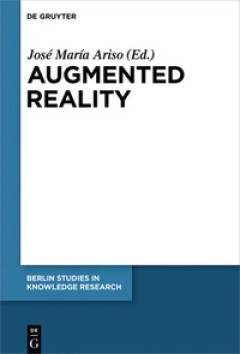
Augmented reality : reflections on Its contribution to knowledge formation
There is at present no publication specifically dedicated to analyzing the philosophical implications of augmented reality, especially regarding knowledge formation, which constitutes a fundamental trait of knowledge society. That is why this volume includes an analysis of the applications and implications of augmented reality. While applications cover diverse fields like psychopathology and ed…
- Edition
- -
- ISBN/ISSN
- 9783110497656
- Collation
- VII, 322 p.
- Series Title
- Berlin Studies in Knowledge Research, 11
- Call Number
- 100 AUG a
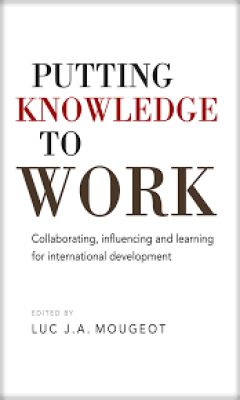
Putting kwowledge to work: collaborating, influencing and learning for intern…
Dramatic changes in the ecosystem for international development are now pressing civil society organizations (CSOs) to invest more in knowledge to remain significant players. While the need for creative thinking and experimentation is greater than ever, there is still very little research published on challenges experienced and solutions found by CSOs as they adjust to the global changes underw…
- Edition
- -
- ISBN/ISSN
- 9781552505939
- Collation
- -
- Series Title
- -
- Call Number
- -
Deconstructing martial arts
What is the essence of martial arts? What is their place in or relationship with culture and society? Deconstructing Martial Arts analyses familiar issues and debates that arise in scholarly, practitioner and popular cultural discussions and treatments of martial arts and argues that martial arts are dynamic and variable constructs whose meanings and values regularly shift, mutate and transfor…
- Edition
- -
- ISBN/ISSN
- 9781911653035
- Collation
- xi, 170p.: ill.
- Series Title
- -
- Call Number
- 796.8 BOW d
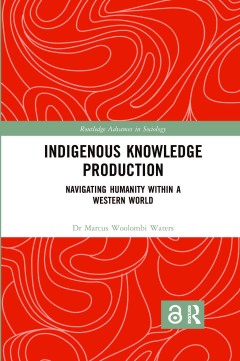
Indigenous knowledge production : navigating humanity within a western world
Despite many scholars noting the interdisciplinary approach of Aboriginal knowledge production as a methodology within a broad range of subjects – including quantum mathematics, biodiversity, sociology and the humanities - the academic study of Indigenous knowledge and people is struggling to become interdisciplinary in its approach and move beyond its current label of ‘Indigenous Studies�…
- Edition
- -
- ISBN/ISSN
- 9781315437811
- Collation
- viii, 188p. : ill.
- Series Title
- -
- Call Number
- 305.8 WAT i
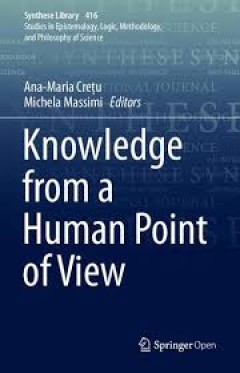
Knowledge from a human point of view
This open access book – as the title suggests – explores some of the historical roots and epistemological ramifications of perspectivism. Perspectivism has recently emerged in philosophy of science as an interesting new position in the debate between scientific realism and anti-realism. But there is a lot more to perspectivism than discussions in philosophy of science so far have suggested.…
- Edition
- -
- ISBN/ISSN
- 9783030270414
- Collation
- -
- Series Title
- -
- Call Number
- 378 CRE k
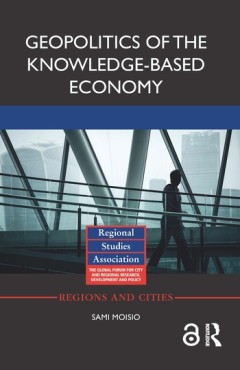
Geopolitics of the knowledge-based society
We live in the era of the knowledge-based economy, and this has major implications for the ways in which states, cities and even supranational political units are spatially planned, governed and developed. In this book, Sami Moisio delves deeply into the links between the knowledge-based economy and geopolitics, examining a wide range of themes, including city geopolitics and the university as …
- Edition
- -
- ISBN/ISSN
- 9781138821996
- Collation
- xi, 182p. : ill.
- Series Title
- -
- Call Number
- 303.4833 MOI g
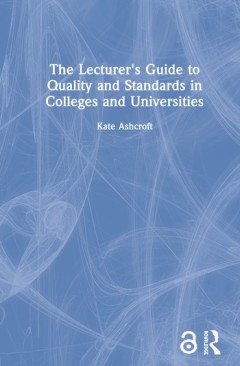
The lecturer's guide to quality and standards in colleges and universities
A follow-up volume to "Managing Teaching and Learning in Further Education and Higher Education", this text provides a guide to managing quality and standards from the lecturer's point of view. It covers key issues such as teaching, learning, student support, assessment, evaluation, course design, bidding for and managing resources, marketing and research.; Based on the model of lecturer as ref…
- Edition
- -
- ISBN/ISSN
- 9780203975534
- Collation
- viii, 224p. : ill.
- Series Title
- -
- Call Number
- 378.1250941 ASH l
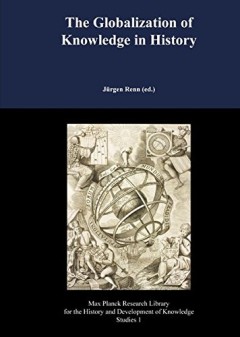
The globalization of knowledge in history : based on the 97th Dahlem Workshop
Today scientific, technological and cultural knowledge is shared worldwide. The extent to which globalized knowledge also existed in the past is an open question and, moreover, a question that is important for understanding present processes of globalization. This book, the first volume of the series "Studies" of the "Max Planck Research Library for the History and Development of Knowledge," th…
- Edition
- -
- ISBN/ISSN
- 9783844222388
- Collation
- 866p. : ill.
- Series Title
- -
- Call Number
- 001.01 GLO g
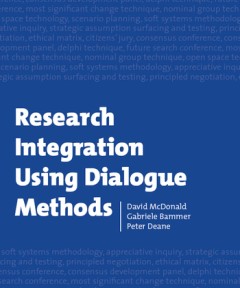
Research integration using dialogue methods
Research on real-world problems—like restoration of wetlands, the needs of the elderly, effective disaster response and the future of the airline industry—requires expert knowledge from a range of disciplines, as well as from stakeholders affected by the problem and those in a position to do something about it. This book charts new territory in taking a systematic approach to research integ…
- Edition
- -
- ISBN/ISSN
- 9781921536755
- Collation
- ix, 165p. : ill.
- Series Title
- -
- Call Number
- 001.4 MCD r
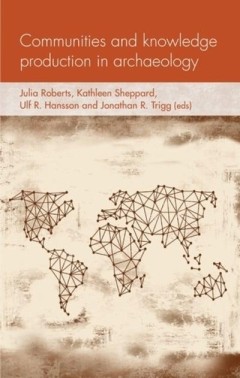
Communities and knowledge production in archaeology
The dynamic processes of knowledge production in archaeology and elsewhere in the humanities and social sciences are increasingly viewed as the collaborative effort of groups, clusters and communities of researchers rather than the isolated work of so-called ‘instrumental’ actors. Shifting focus from the individual scholar to the wider social contexts of her work and the dynamic creative pr…
- Edition
- -
- ISBN/ISSN
- 9781526134554
- Collation
- xvii, 250p. : ill.
- Series Title
- -
- Call Number
- 930.1 COM c
 Computer Science, Information & General Works
Computer Science, Information & General Works  Philosophy & Psychology
Philosophy & Psychology  Religion
Religion  Social Sciences
Social Sciences  Language
Language  Pure Science
Pure Science  Applied Sciences
Applied Sciences  Art & Recreation
Art & Recreation  Literature
Literature  History & Geography
History & Geography